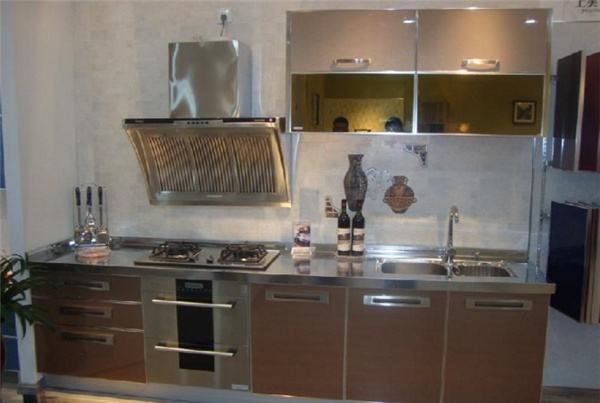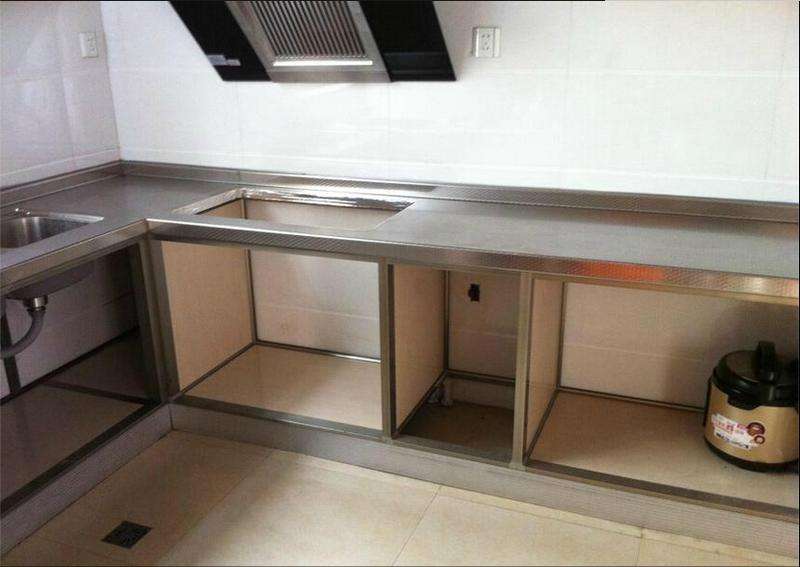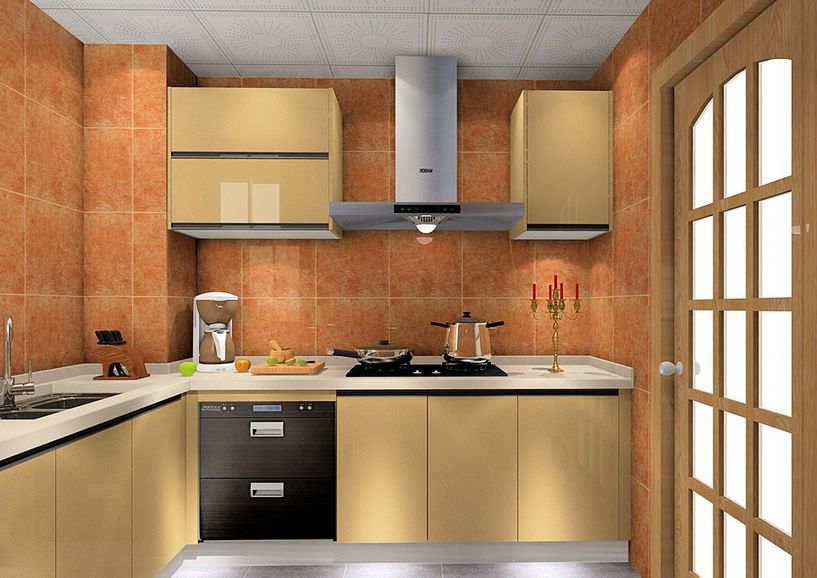Kitchen decoration is very important, cabinet decoration is one of them. Many home renovations will choose to install aluminum alloy cabinets, but do not know how aluminum alloy cabinets ? What are the advantages and disadvantages of aluminum alloy cabinets? Let's take a look at the aluminum alloy cabinets with Xiao Bian!
How about aluminum alloy cabinets:
Aluminum alloy cabinets are more suitable for the layout of simple household products, aluminum alloy cabinets to solve some of the shortcomings of the common cabinets, we all know that in the kitchen, is the hardest hit area, often cook easily dirty, so choose the aluminum alloy material kitchen Cabinets, materials are not easy to rust, the price is not expensive, the average family can accept, unlike the whole cabinet as high prices, the average family is always far. Aluminum alloy cabinets can satisfy consumers' needs and have different feelings. High cost performance, trustworthy. 
Aluminum cabinet advantages:
1, the advantages of aluminum alloy cabinets are mainly anti-wear, anti-corrosion, and aluminum cabinet waterproof and fireproof, very easy to clean, can be wiped directly with water, daily cleaning is simple, only need to use a less wet cloth can be wiped.
2. From the aspect of appearance, the aluminum alloy cabinet has clear lines, is not easy to rust, and has long service life. And there is a unique metallic luster, simple and generous, it will make people feel refreshed after entering the kitchen. 
3. From the aspect of cost, the price of aluminum alloy cabinets is close to the people, and compared with the high prices of the whole cabinets, it is suitable for the kitchen decoration of ordinary families and is more suitable for the economic capacity of ordinary families.
Aluminum alloy cabinet disadvantages:
1. The visual experience of aluminum alloy cabinets is cold and cold, texture is hard, so people who don’t like often give up because of this reason. This is why aluminum cabinets cannot be compared to other colorful cabinets. 
2, aluminum alloy cabinets are not resistant to collision, after the collision, it is prone to bumps, uneven, and otherwise easy to repair. Therefore, it is necessary to pay more attention when using it normally, otherwise it is difficult to repair.
3. If aluminum alloy door panels are directly exposed to sunlight, the original color of the aluminum alloy door panels will be darkened, and the paint on the aluminum alloy door panels will fade. Cracking is the most common problem for aluminum alloy door panels. Because aluminum alloy door panels are generally made of hardwood and use a combination of a frame and a frame, it is normal for the composite interface to have slight scaling or cracking in different seasons and different humidity environments. 
Summary: The relevant information about aluminum alloy cabinets is introduced here for everyone. After reading these, what do you think of aluminum alloy cabinets? If there is anything that you do not understand, you can leave a message for Xiaobian in the bottom. We will answer your questions as soon as possible. For more information, please follow this site!
Aluminum alloy cabinet
In detergents, detergents are mainly surfactants and are mixed with certain adjuvants. The addition of adjuvant not only reduces the cost of finished detergent, but also improves the detergent decontamination ability, improves the appearance of detergent, and makes the detergent more convenient for use. In addition, a small amount of functional auxiliary ingredients (additives) are usually added to improve the comprehensive properties of washing.
Auxiliaries refer to the auxiliary components in synthetic detergents, which are related to decontamination and can increase washing characteristics. Most of the auxiliaries are inorganic, mainly Phosphate, 4A zeolite, silicate and Carbonate. In addition, organic chelating agents also belong to the category of auxiliaries.
Auxiliaries can be divided into inorganic auxiliaries, according to their functions in detergents, they can be divided into mixtures, foaming agents, defoamers, thickening (viscosity) agents, solvents, pearlescent agents, preservatives, bleaching agents, bactericides (disinfectants), antioxidants, softeners, antistatic agents, friction agents, fluorescent brighteners (FWA), solvents, anti-fouling and re-deposition. Agents, enzymes, flavors, pigments, etc.
Disodium EDTA,Tetrapotassium Pyrophsphate,Trisodium Phosphate,Sodium Tripolyphosphate
Jiangsu Kolod Food Ingredients Co., Ltd. , https://www.kolodchem.com
